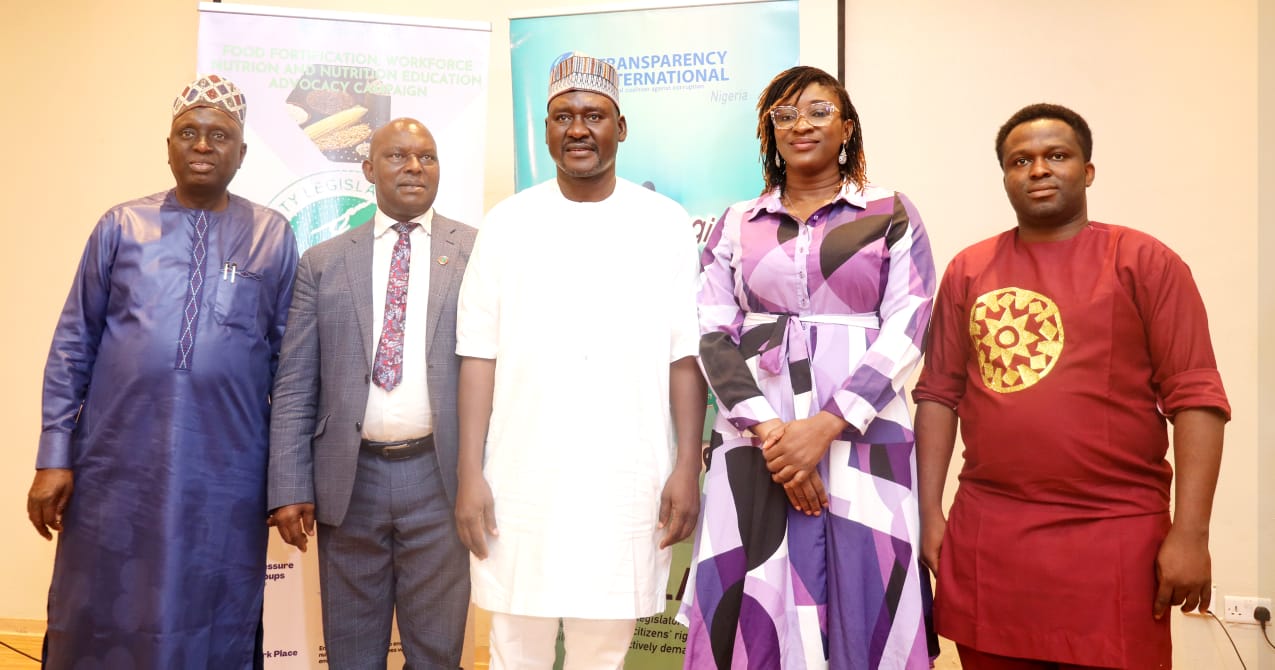Ibrahim Oloriegbe, chairman of the senate committee on health, says Nigeria needs a law that mandates employers to provide adequate nutrition for workers.
The senator spoke on Thursday in Lagos during the launch of a campaign promoting fortification compliance and workforce nutrition in Nigeria.
The advocacy campaign was sponsored by the Civil Society Legislative Advocacy Center (CISLAC) in collaboration with the Nigeria Economic Summit Group (NESG) and E-Health Africa.
Oloriegbe said the country lacks laws mandating companies to ensure their employees are nourished, adding that workplace nutrition should not be optional.
Advertisement
He added that the law is needed “if we want to have productive workers and a booming economy”.
“When we talk about advocacy, that means we target the government to institute policies that would promote food fortification and companies’ compliance with it. And we have companies adopting workforce nutrition,” he said.
“We do not have a law yet that says employers must provide good nutrition for their workers — it is just optional now. But we do need it if we want to have productive workers and a booming economy.
Advertisement
“There should be at least one meal per day for workers in the workplace. So, there should be a law which says that if you have a certain amount of workers part of the package should be food in the office.
Oloriegbe said Nigeria has two million acutely malnourished children and the deficiency can be food fortification with micronutrients.
“In Nigeria about 32 percent of under-five children — that is 32 out of 100 — have malnutrition. And we have about two million severe acute malnourished children in Nigeria. This is high because we have conflicts across the country,” the senator said.
“All these security challenges are one of the major reasons for malnourishment in Nigeria. Because of that, farmers are not able to farm and traders cannot trade. Those that suffer most are the children and women.”
Advertisement
‘NUTRITION CRISIS’
Auwal Rafsanjani, executive director of CISLAC, said Nigeria is “facing a serious nutrition crisis”.
He added that there is a need to spotlight the crisis and proffer lasting policies to effect necessary change.
“As you know, Nigeria is facing a serious nutrition crisis. Millions of Nigerians are undernourished, and many more are overweight or obese. This has a devastating impact on health, productivity, and economic development,” he said.
Advertisement
“Food fortification is a proven way to improve nutrition and health. It is a simple, cost-effective intervention that can be used to add essential nutrients to foods that are commonly consumed by large populations.
“Although adults spend more than half of their active hours of the day at work, the workforce is particularly vulnerable to malnutrition. Workers who are not getting the nutrients they need are more likely to be sick, less productive, and more likely to have accidents. This can have a significant impact on the economy.”
Advertisement
Afolabi Wasiu, president of the Nutrition Society of Nigeria, and Gbenga Ogunmoyela, president of Consumer Advocacy for Food Safety and Nutrition Initiative (CAFSANI), also spoke at the event.
Advertisement
Add a comment






